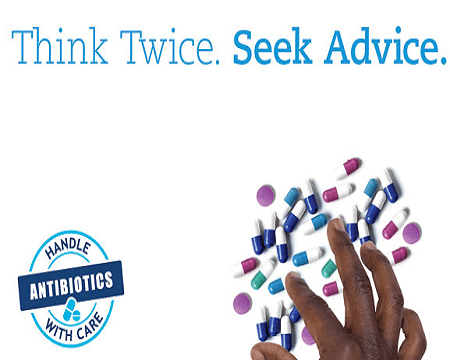Its World’s Antibiotics Awareness Week (WAAW), designed to be observed from 13-19 November of every year. The theme of this year, being the maiden edition is: “Handle Antibiotics with Care – think twice, seek advice”.
Discussions surrounding the theme have all been pointing to indiscriminate use of antibiotics, as the main culprit of resistance by microbes. In fact, following the United Nations prediction that antibiotics resistance could kill 10 million people by 2050 if nothing is done, experts have warned that 90 percent of antibiotics use is unnecessary.
According to the World Health Organisation (WHO)’s statement on the WAAW, “Antibiotics resistance is one of the biggest threats to global health, food security and development today”. In driving home the essence of the Week, WHO and partners have mapped out a plan to reach out to health professionals, governments, farmers, veterinarians, the food and feed industry, and the public via social media, on the need to desist from antibiotics usage without prescription from a medical personnel.

Sharing same view with the world’s apex health institution, Dr. Yoav Golan, an Internal Medicine and Infectious Diseases expert, recently cautioned Nigerians on antibiotics intake as too much of it can cause more harm than good.
Condemning the act of taking antibiotics without due recommendation from a medical doctor, he said it’s not ideal to take antibiotics without prescription from a qualified healthcare provider who should authoritatively give reasons why it should be taken for an ailment.
Golan further explained the cause of antibiotics resistance saying, when antibiotic is abused, it could lead to resistance. “Antibiotics abuse also has its side effects, a lot of antibiotics cause diarrhoea, allergic reactions, and if you deal with such antibiotics then you will be exposed to much more risk than benefits.” According to him, health education should be adopted at the national level so as to first educate the health providers.











